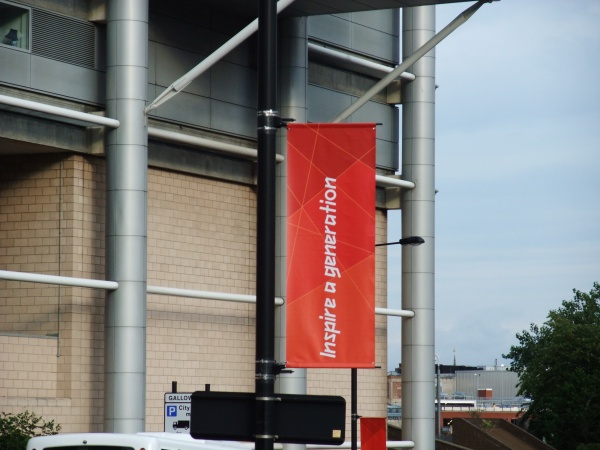
Murray with the Japan Open trophy in 2011 (Christopher Johnson)
77 years. Almost as long as Brooks Hadlen’s prison sentence in the “Shawshank Redemption.” Fred Perry’s Wimbledon win in 1936, against the German Baron Gottfried von Cramm, had hung over British tennis like a giant slumbering bat for more than three quarters of a century.
Now, after Sunday, when asking the question, “when was the last time a British man won the Wimbledon singles title?”, we can answer “a few days ago.” Dunblane and Scotland’s favourite son, as the whole world knows, beat top seed and world no.1 Novak Djokovic in straight sets, winning 6-4 7-5 6-4.
A simple straight sets match it was not, however. In `36, Fred Perry beat his German opponent 6-1 6-1 6-0, taking around 40 minutes to vanquish his Teutonic foe. Murray’s match, on the other hand, was almost exactly 5 times as long. In a match that ebbed and flowed, with both players breaking one another’s serve with regularity, crucial points were often decided by tiny margins.
For me a pivotal moment came at 4-5 and 30-40 in the second set, with Murray looking to enforce his break back of serve with a hold. He served an ace very near the the Serb’s left sideline which was allowed by the line judge, then inevitably challenged by Djokovic. If the ball had landed around 1 or 2mm further to the left, Murray may have had to put his less than convincing second serve into play on a break point. As it was, the game moved to deuce (as so many of them did in this epic tussle), and Murray held on, winning the next two games to take the second set.
At twenty past five, having put the citizens of this island through a bit of wringer in the final game, Murray converted his fourth championship point (having seen off three Djokovic break points). And what an incredible moment it was. 15,000 people in Centre Court, a couple of thousand on Henman Hill, three thousand in Festival Square in Edinburgh and millions round the country perched in front of their televisions (like me) went mental with delight.
His achievement is one that, for once, should not be played down. Murray’s win has to been in the same bracket as that of Bradley Wiggins’ Tour de France win in terms of the sporting achievement. Where Murray’s win reaches a whole new level is in the degree extraordinary mental strength and prowess that was required in achieving victory.
As Sir Chris Hoy said after Sunday’s match, “Andy Murray is British tennis”, and he has been as much since the 2005 Championships, when he was a mere 18 years old. Since then, he has improved year-on-year, with the expectation and pressure rising in equal measure. His personality and public demeanour was wrongly regularly criticised (and still is). Last year’s Wimbledon final, as was acknowledged in the excellent “Andy Murray: the Man Behind the Racquet” documentary, was something of a watershed in his relationship with the British public. That it took a man to cry in public in order that the masses started to like him says something about the fickle nature of the general populace.
He however took that experience, and turned it into firstly an emphatic Olympic gold medal, followed by a first grand slam in the early hours of the (UK) morning in New York last autumn. With all that on his back, the expectation, the groans that followed every failed first serve and the manic cheers that followed every point in the closing games of that Sunday’s final, he was still able to drag himself over the line and lift that famous golden cup. Andy, sir, I salute thee.
And as for a knighthood, as I’ve commented previously, silly precedents have already been set. If Nick Faldo deserves a knighthood for being a shoddy Ryder Cup captain and winning a few majors, then for a man who has laid to rest a ghost that had haunted British sport for nigh-on 80 years – in my view a knighthood is the least he deserves.


